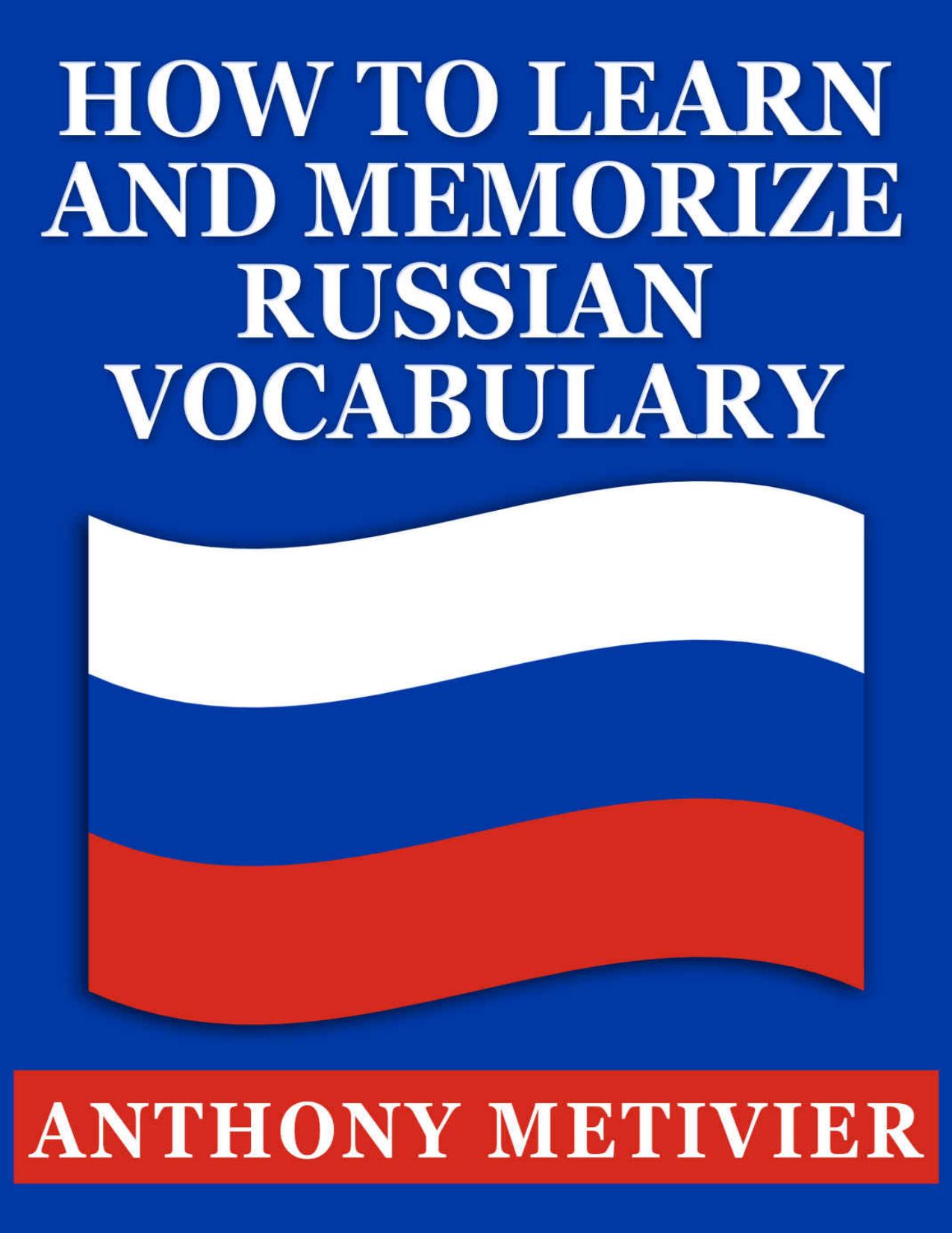How to Learn and Memorize Russian Vocabulary ... Using a Memory Palace Specifically Designed for the Russian Language (Magnetic Memory Series) by Anthony Metivier

Author:Anthony Metivier [Metivier, Anthony]
Language: eng
Format: azw3, pdf
Publisher: Advanced Education Methodologies
Published: 2013-06-28T16:00:00+00:00
Chapter Three: Notes on the Creation and Management of Your Russian Language Memory Palaces Russian vocabulary is most rapidly acquired by learners who come to the task prepared with the necessary number of Memory Palaces. Weâve already talked about some of the points covered in this chapter, but I want to devote a special section to creating and maintaining the palaces in order to add depth and detail to the process. The more time you spend now on understanding the concept involved, the more time youâll have later to focus on acquiring Russian vocabulary with ease.
Each of your locations should have at least 10 stations, each prepared and ready to be populated with association-rich images that will bring the words you have learned easily to mind whenever you need them. As ever, your Memory Palaces should be constructed in such a way that you will never cross your own path or reach a dead end.
Keep in mind that you always want to be able to add more stations. It is unlikely that you will ever need more than 100 in any given palace, but if ever you do, you should be prepared to have places to add them.
Some people tell me that it is impossible for any given palace to have so many stations. However, if you think of all the places youâve lived, it will quickly become clear to you that the possibilities are endless. If you can squeeze just 10 stations out of your current home by using individual rooms and doorways, then with a little thought, you can extend that to twenty.
What route takes you to the bus stop? Surely there are numerous memorable locations on the way: the bakery, the florist, the dental clinic above the hearing loss centre. If you take the subway, each stop can become itâs own station where you leave an image. For years I have used both the Toronto, New York and Berlin subway systems as Memory Palaces and each provide countless stations where I can leave words that I want to remember for easy recall.
Remember: preparing and predetermining your locations and stations in advance is of the utmost importance when it comes to rapidly acquiring a large vocabulary. Please spend the time to create your constellation of palaces before placing even a single word of Russian vocabulary into your mind.
The next matter of importance is relaxation. Please see the final chapter for detailed information about creating the perfect mental and physical state for vocabulary acquisition.
Next is the matter of maintenance. At the risk of being repetitive, I have included this information twice in this book. As we all know, the Russian alphabet has 33 letters. Our months have either 29, 30 or 31 days in them. This means that you will always have plenty of time for rehearsal.
Although the memorization of vocabulary using the system taught in this book has lasting power, it is important to perform âquality control.â This means revisiting the words you have memorized at least once a month.
Download
How to Learn and Memorize Russian Vocabulary ... Using a Memory Palace Specifically Designed for the Russian Language (Magnetic Memory Series) by Anthony Metivier.pdf
This site does not store any files on its server. We only index and link to content provided by other sites. Please contact the content providers to delete copyright contents if any and email us, we'll remove relevant links or contents immediately.
Cecilia; Or, Memoirs of an Heiress — Volume 1 by Fanny Burney(32544)
Cecilia; Or, Memoirs of an Heiress — Volume 2 by Fanny Burney(31942)
Cecilia; Or, Memoirs of an Heiress — Volume 3 by Fanny Burney(31928)
The Lost Art of Listening by Michael P. Nichols(7488)
Asking the Right Questions: A Guide to Critical Thinking by M. Neil Browne & Stuart M. Keeley(5757)
We Need to Talk by Celeste Headlee(5608)
On Writing A Memoir of the Craft by Stephen King(4928)
Dialogue by Robert McKee(4386)
Pre-Suasion: A Revolutionary Way to Influence and Persuade by Robert Cialdini(4218)
I Have Something to Say: Mastering the Art of Public Speaking in an Age of Disconnection by John Bowe(3872)
Elements of Style 2017 by Richard De A'Morelli(3339)
The Book of Human Emotions by Tiffany Watt Smith(3300)
Fluent Forever: How to Learn Any Language Fast and Never Forget It by Gabriel Wyner(3077)
Name Book, The: Over 10,000 Names--Their Meanings, Origins, and Spiritual Significance by Astoria Dorothy(2978)
Why I Write by George Orwell(2944)
Good Humor, Bad Taste: A Sociology of the Joke by Kuipers Giselinde(2941)
The Art Of Deception by Kevin Mitnick(2796)
The Grammaring Guide to English Grammar with Exercises by Péter Simon(2737)
Ancient Worlds by Michael Scott(2682)
